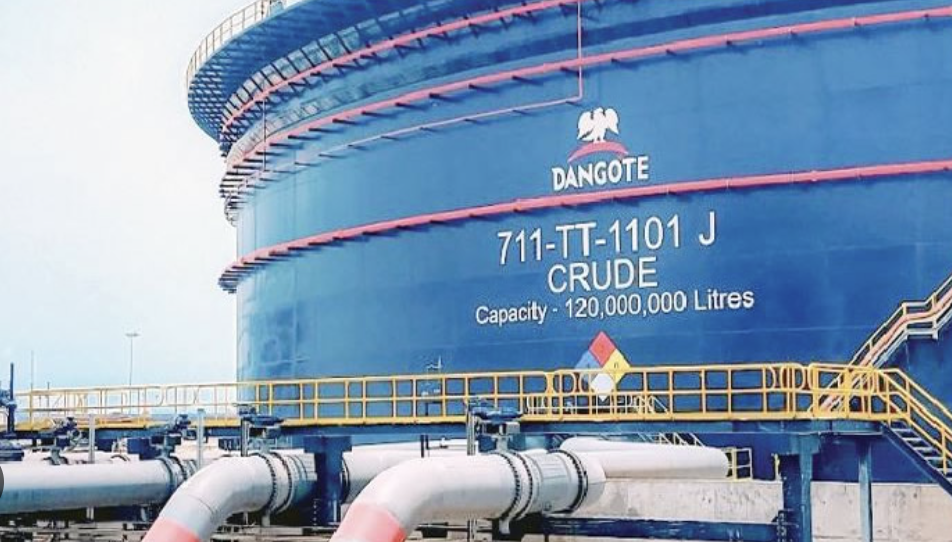In an exciting development for the energy sector, the Dangote Refinery, Africa’s largest oil refinery, is set to receive a monumental 24 million barrels of crude oil during the months of October and November. This ambitious importation is not merely another page in Aliko Dangote’s ever-expanding playbook but a significant stride towards boosting Nigeria’s petroleum production capacity.
A Giga-Project in African Industry
Unveiled with much fanfare, the Dangote Refinery, located on the sprawling, sun-drenched lands of the Lekki Free Zone near Lagos, represents Dangote Group’s monumental ambition to transform Nigeria’s oil industry. With a capacity to process 650,000 barrels per day, it eclipses all peers in terms of scale.
– Spanning over 2,635 hectares of land
– Employment potential for tens of thousands of local and international skilled workers
– Over $15 billion investment committed towards bulking up this facility

Despite a few skirmishes with construction challenges and the occasional delay, the refinery’s grand narrative propels Nigeria towards a new oil dawn, poised to become a net exporter of refined oil products upon commencement of operations.
Importing the Life-Blood: The Crude Strategy
The importation strategy is nothing short of meticulous; akin to a culinary auteur selecting the finest truffles for his pièce de résistance.
Key Highlights of the Crude Importation Plan:
– Importation of 10 million barrels in October
– Complemented by another 14 million barrels in November
– Adoption of technologically advanced systems to streamline the refining process
This tidal wave of crude inflow marks an aggressive pursuit to commence operations at full throttle. Despite the allure of local crude, importing diversified barrels ensures an eclectic mix that optimizes production, guaranteeing higher yields of high-quality products like gasoline, diesel, and kerosene.
Economic Ripples Across Nigeria and Beyond
The substantial inflow will significantly impact **Nigeria’s import-reduction strategy**. The home-grown oil refinement will play a vital role in curtailing the ravenous appetite for fuel imports, a persistent inconvenience besetting the Nigerian economy. According to analysis, once fully operational, the refinery is expected to save the national economy **billions annually**.
Potential Economic Advantages:
– Reduction of **exchange rate pressure** by mitigating fuel import bills
– Stability of local fuel prices
– Stimulation of adjacent sectors, such as **petrochemical production**
Greater things are certainly bubbling in the pipeline with prospects of exporting refined fuels, a veritable phoenix rising from the grip of import-dependence.
The Global Peek-Over
Beyond Nigeria, the international audience watches with keen focus. The Dangote Refinery bears the weight of expectations from global observers and investors scrutinizing how African industrial capacity could redefine its participation in the global oil market.
Global Observations and Reactions:
– Anticipated as a harbinger of increased **continental self-sufficiency**
– **Investor interest** from international markets eyeing Africa as a burgeoning hub
– A paradigm shift reinforcing Africa’s **global market competitiveness**
The Larger-than-Life Influence of Billionaires
Aliko Dangote isn’t merely paving roads and laying pipelines; he is laying foundations, ones that echo the indomitable spirit of human enterprise and audacity. The Dangote Refinery is not just an industrial complex; it is a testament to the transformative potential of billionaire investments. Such grand ventures fuel entrepreneurial ecosystems, sprouting new sectors like seedlings braving the sun.
Billionaires maneuver within the unique arena where wealth meets vision. Their grand gestures serve as engines of economic acceleration, catalyzing growth that echoes far beyond their immediate impact.
In essence, while billionaires enrich themselves, they inadvertently enrich the world: crafting industries, employing seas of people, and stitching the fabric of an economy with threads of hope. Dangote, through his refinery, exemplifies this ethos—a man and a project both immense in scale, capable of reshaping conventional narratives about oil and economic development in Africa.
An industrial marvel. A billionaire’s dream. An economic triumph. Each plays its part in the grand Nigerian tale of resilience and reinvention. And as crude oil flows through pipes into the mammoth heart of Dangote Refinery, so too flows a future alight with potential.